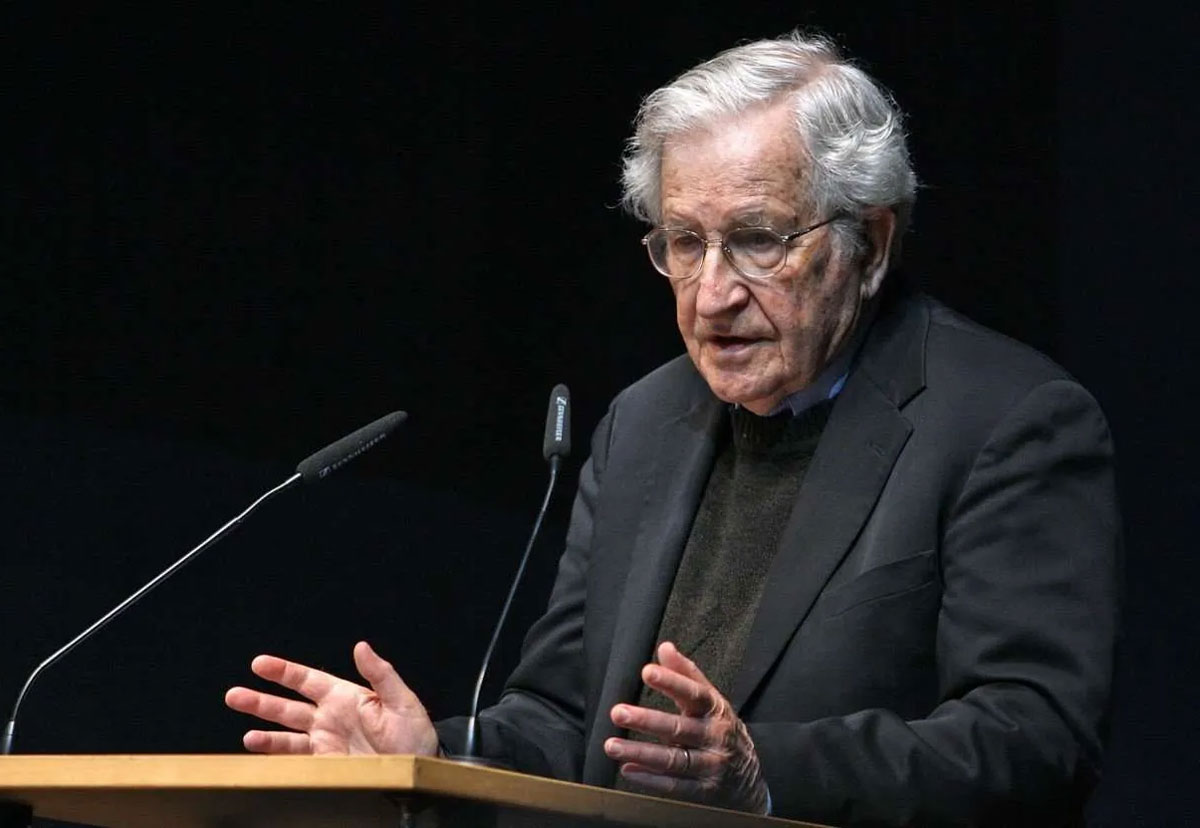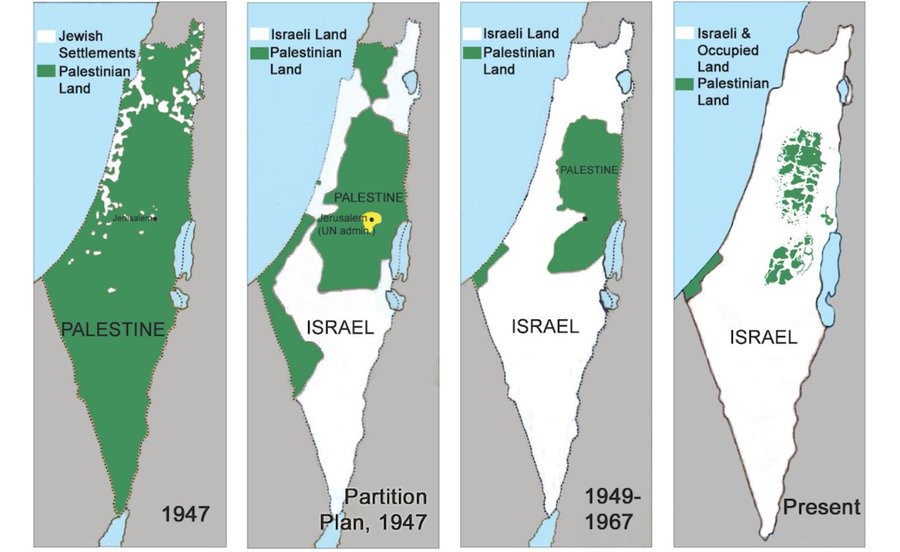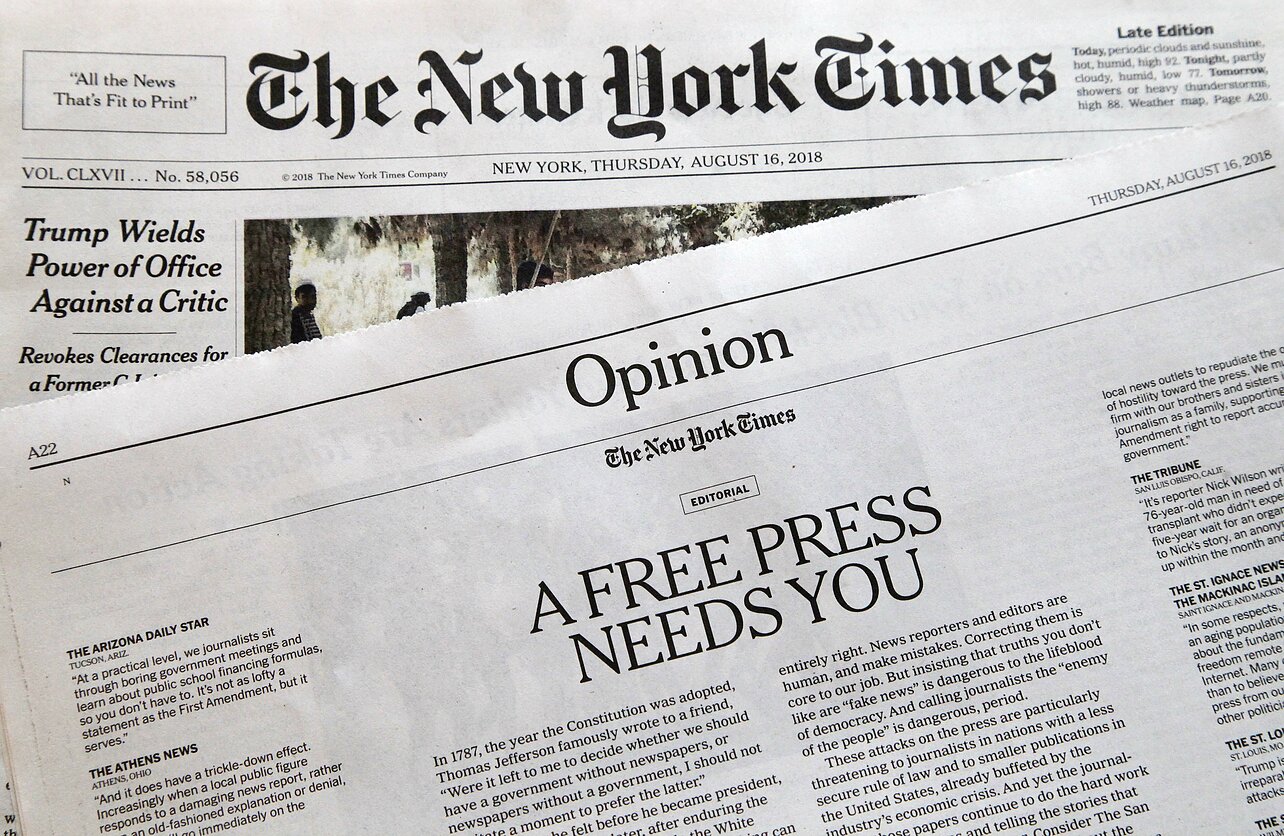by Noam Chomsky
Why does the United States support Israel? Well, there’s a history, and a very interesting one that actually goes back to… goes back a long time. Uh… one thing to remember is that Christian Zionism is a very powerful force which goes back long before Jewish Zionism. In England, particularly, Christian Zionism was a powerful force among British elites. It’s part of the motivation for the Balfour declaration and for Britain’s support for Jewish Colonization of Israel. Remember… the Bible said… you know… and that’s a big part of British elite culture.
Same in the United States. Woodrow Wilson was a devout Christian who read the Bible every day. So did Harry Truman. In the Roosevelt administration, one of the leading officials, Harold Ickes, once described the return of the Jews to Palestine as the greatest event in history. It’s so realizing the lesson of the bible. These are deeply religious countries in which the Biblical command, so-called, are taken quite literally. Also, this is just part of colonization. This is the last phase of European colonization. And notice that the countries that are most strongly in support of Israel are not just the United States. It’s the United States, Australia, and Canada. The offshoots of England—Anglosphere sometimes called. Unusual forms of imperialism. These are settler colonial societies. Coloned societies in which the… not like India… not like the British in India, say… Societies, South Africa, was a little like this, or Algeria under the French. Settler colonial societies in which the settlers came in, essentially eliminated the native population also driven by religious principles… Very religious groups driven by Christian Zionism. Those are major cultural factors.
There are also significant geostrategic factors. In 1948, there was actually a split between the State Department and the Pentagon in the United States over how to react to the new state of Israel. The State Department was questioned; it was not committed strongly to Israeli conquests, the establishment of the state, and was concerned about the refugees. It wanted an implementation of the refugee problem.
On the other hand, the Pentagon was very impressed with Israel’s military potential and the Israeli military successes. If you look back at the internal record, in declassified documents, the Joint Chiefs of Staff described Israel as the second largest military force in the region after Turkey and a potential base for U.S. power in the region. That continued. I can’t run through the whole record, but in 1958 when there was a serious crisis in the region, Israel was the only state that strongly cooperated with Britain and the United States and it won plenty of support from the governments and the military for that reason.
1967 is when the current relations with Israel were pretty much established. Israel performed a major service to the United States by destroying secular Arab nationalism, a major enemy of the United States, and supporting radical Islam—which the U.S. supported—and it continues right until the present. Right now, we saw an example of that just during the latest Gaza attack. You recall that at one point, Israel began to run out of munitions during the assault—despite the fact that it’s armed to the teeth—that the United States provided Israel with additional munitions through the Pentagon. Notice where they were taken from. These were U.S. munitions pre-positioned in Israel for eventual use by U.S. Forces, one of many signs of how Israel is regarded as essentially a military officer of the United States. Very close intelligence relations that go way back, many other connections.
And the media tend to support the policy of the government with very few questioning around the edges, but basically accept the policy. So for example, take another issue. Take the U.S. invasion of Iraq. You cannot find the phrase ‘U.S. invasion of Iraq’ in the U.S. media. There was obviously an invasion. A blatant act of aggression. A textbook case of what Nuremberg trials called the supreme international crime. Cannot be mentioned. President Obama is praised as an opponent of the invasion. What did he say? He said it’s a mistake. It’s a strategic blunder. We’re not going to get away with it. Now that’s about as much opposition as you heard from the German general staff during Hitler’s invasion of Russia. It’s a blunder. Shouldn’t do it. We should knock off England first. That’s regarded as opposition.
The same in Vietnam, there’s now a commemoration underway. A big commemoration of U.S. sacrifices in Vietnam. Try to find the phrase ‘U.S. invasion of South Vietnam’ there or anywhere in the past years since 1961 when it took place. Nonexistent. Maybe on ‘Democracy Now’, what I write, but way out of the fringe. And this is not unique to the United States. Take, say, Britain. Right now, there’s interesting debates in the British literary journals like the Times Literary Supplement as to whether Britain should finally begin to recognize the genocidal character of British Colonization hundreds of years ago. Should Britain begin to face it? You know you can ask that question in many places. The tendency of the intellectual community to go along like a herd in support of state power, private power is just overwhelming.
We, people, intellectuals like to think of themselves as dissident, critical, courageous, standing up against power. Absolutely untrue. You look at the historical record, that’s a small fringe, and they’re usually punished.
The mainstream tends to be what was once called a ‘herd of independent minds’ marching in support of State power. Nothing new here. Unfortunate. You have to fight against it. Not new.





